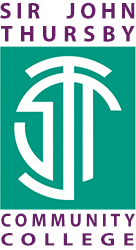Topic 2 Year 7 Performing Arts - Drama
| Performing Arts - Drama | |||
| Topic | Exploring Greek Theatre | ||
| No of lessons | |||
| When is it happening | Term 2 Year 7 | ||
| What will students learn | Students must learn the features and acting style required for Greek Theatre. They will learn about the influences, purpose and history of the style in order to apply choral techniques speech and movement. Students must learn how to engage an audience effectively as a chorus member through application of spoken narrative and movement using extracts of existing Greek text and developing their own from other fables. Students must learn about morals within story telling and how to deliver performance work effectively with a message. | ||
| Key Knowledge that students should know at the end of 'Topic' | This is the knowledge that students will meet for the first time in this topic |
The celebration of Greek Gods and their influence on the works of Greek playwrights. They will identify the key features of the style of work in an exaggerated manner. They will be introduced to existing stories and fables that make up the different genres of Greek Theatre. Students will also gain an understanding of the layout of an Amphitheatre, being able to recall the names for the different areas. |
|
| This is knowledge that students may have met before but will need to deepen their understanding | Students will have a knowledge of performance skills and be able to discuss what makes a good performance. Students will also be able to discuss decisions around how they are using their voices and body language - what it communicates. | ||
| Key Skills that students should be able to demonstrate at the end of 'Topic' | This is the skills that students will meet for the first time in this topic | Audience engagement through spoken narrative and physical movement in unison. Basic Physical Theatre - using the bodies to create different abstract shapes to help tell a story, represent abstract scenarios and characters. Working through choral speaking techniques such as Unison and Canon to work as part of a Greek Chorus. Students will be able to demonstrate the different areas of an Amphitheatre in their staging of their pieces. Choral techniques both speaking and physical movement. | |
| This is skills that students may have met before but will need to develop | Through speech and movement students will recall the ability to collaborate within a team in order to explore and create performance work in response to a given stimulus now as a chorus member. Body language and the importance of the voice in performance will be used at a heightened level to reflect the exaggerated style. They will be able to apply these stylistic features to a given story in order to create their own Greek Theatre performance. | ||
| Key vocabulary that students should know and understand |
Amphitheatre, Chorus, Tragedy, Comedy, Vocal Colour, Narration, Unison, Canon, Ensemble, Synchronisation, Exaggeration, Style |
||
| The Big Question | What are the key features of Greek Theatre? | ||
|
Key questions that students should be able to answer at the end of the 'Topic' |
How and why did theatre come about in Ancient Greece? | ||
| What is the purpose of the Greek Chorus? | |||
| What form of theatre do we take influences from for telling the story physically? | |||
| What do we call looking at the audience in mask? | |||
| What are the key features of a Greek Tragedy? | |||
| How does Greek Comedy differ to Greek Tragedy? | |||
| What Greek techniques can I add to my own work? | |||
| What have I learnt about the style and purpose of Greek Theatre? | |||
